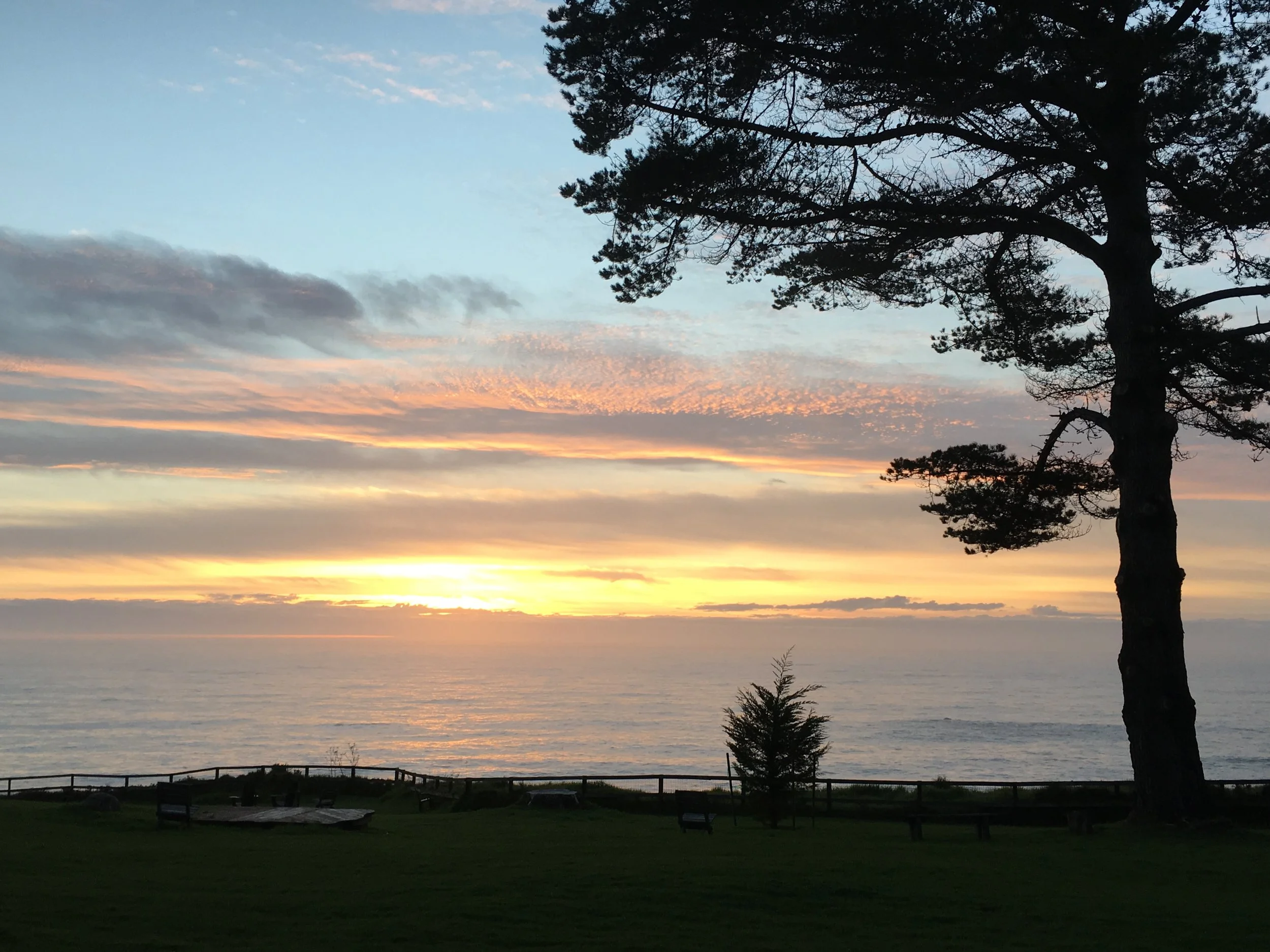What is transformation? What is change? What is transmutation? What’s the difference? Which of these are possibilities in our lives? What are the steps we can take toward these shifts? How far are you willing to go?
When the way comes to an end, then change. Having changed, you pass through.
~ I Ching
Cliches are abundant when it comes to change, so I’ll do my best to avoid cultural redundancy. As far as I can tell, change is what this whole cosmological experiment is about. From the genesis of manifest reality out of the psychedelic soup of unmanifest consciousness - to your eyes gazing at the illuminated screen before you - to the great teleological collapse back into the beautifully unified ambivalent void, change is happening. It’s all that has ever happened and it’s all that will ever happen…as long as things are happening that is.
What I’m trying to say is change is easy. You’re always changing. Even when you think you’re not doing anything, you’re still changing. We have this fantastically complex (and handy) autonomic nervous system that regulates all the little things in life that you can’t live without. It’s beating your heart, sending blood all throughout your body. It’s breathing your lungs, converting all that good oxygen into the stuff all that blood cruising through your veins needs. It even digests your food, converting micro and macro nutrients into medicine and shipping them off to appropriate corporeal locations. Can you imagine a life where you have to consciously regulate all that business? Neither can I. Thank you autonomic nervous system! You’re doing a really great job and I apologize if I don’t give you enough praise for all the hard work you do every moment of my life.
So yeah, that’s change. It just is, whether you like it or not.
We often speak of wanting to make changes in our lives. We may recognize that we’ve formed some habits that are more harmful than helpful and we’d like that to no longer be the case. How do we proceed? It is my understanding that the perpetual abundance of change in our outer and inner ecosystems creates a paradoxical drive toward homeostasis. The thinking, emoting, engaging and discerning nature of our human consciousness seems to crave a bit of stability amongst the ever fluctuating cosmic chaos. We create habits both wanted and unwanted, consciously and unconsciously out of a perceived need for control.
It is only when we have the courage to face things exactly as they are, without any self-deception or illusion, that a light will develop out of events, by which the path to success may be recognized.
~I Ching
Because of the pervasive and fleeting nature of change, I think something a bit more emphatic and dramatic is called for; we need to transform. Transformation is like change on steroids. It has the power to habituate change. If change is a cosmological constant and we’re going to create habits anyway in order to deal with this fact and avoid an existential meltdown, why not take advantage of this predisposition? If habits can be formed, they can be transformed. This is simultaneously wonderful and daunting news. It’s true, there is much about our existence that we cannot control. With this aspect, however, we have a fair bit of agency. We don’t have to live at the whim of nature and the influence of others’ will. We are not victims, we’re agents…secret agents. We are 007 badasses in the unfolding majesty of the universe. How cool is that?!
Before the beginning of great brilliance, there must be chaos. Before a brilliant person begins something great, they must look foolish in the crowd.
~I Ching
Now, transmutation is another matter altogether. This is where we take an orthogonal tangent. If transformation is like change on steroids, then transmutation keeps the steroids pumping while adding a megadose of LSD into the mix. Transmutation was the goal of the alchemists. From the outside, it appeared they were attempting to change lead into gold, when really they were experimenting with transmuting everything from matter to consciousness. By definition, transmutation is the changing of something in one state into an entirely different form or state. In chemistry, this alteration occurs from element to element. In biology, this manifests as the formation of a new species. In other words, evolution.
Anatomically speaking, we’ve been virtually the same for about 200,000 years. Going by modern archeological records (which are only as solid as the things they can unearth) it seems that we made a curious jump in consciousness around 50,000 years ago, leaving behind evidence of artistic expression on the walls of caves. The next big leap? 10,000 years ago with the advent of agriculture, thus shifting humanity from nomadic to sedentary communities. 500 years ago the scientific revolution pushed the commodification of our planet into high gear. 150 years ago the industrial revolution created unparalleled systems for pillaging the earth’s resources to get us to places and things really fast. Finally, about 30 years ago the internet ushered in the information age creating instantaneous planetary communication. Judging by the exponential quality of this curve, I’d say we are just about due for another revolution.
I’ve heard many different ideas tossed around about what this next phase will be. Some follow the doom and gloom path pointing toward the rise and takeover of Artificial Intelligence or they may focus on a complete ecological collapse. Both are possible, but neither are likely. My colleagues in Silicon Valley, writing cutting edge algorithms for machine learning, are actively increasing intelligence in machines in order to aid humanity, not developing silicon sentience. We’ve had AI for decades. Calculators are AI. Last I checked, they’re not very scary.
As for ecological collapse, unless we explode the planet into bits, humans can’t screw this place up any worse than spontaneous gaseous atmospheric introductions, asteroid impacts or the great floods of the past. Life is tenacious. 2.4-3.5 billion years ago, give or take a few hundred million years, 99% of all life on the planet was wiped out (the first of five planetary mass extinctions). What did in these oceanic cyanobacteria? A horrifically toxic gas called oxygen. While detrimental to single cell organisms, it seemed to work out pretty well for us. Life has a great proclivity toward endurance. Maybe we totally blow it for ourselves. The bio-historical evidence suggests that something will thrive in the mess we leave behind. Even if all of that evidence is bogus, our sun will explode in another 4-5 billion years taking our precious blue orb with it. So, meh. We can't screw up too bad. (Tongue planted firmly in cheek.)
There have also been some delightfully woo-woo Age of Aquarius types of ideas. Harmony and understanding…mystic crystal revelation and what not. That sounds lovely. Some tech guys are looking to upload their consciousness into machines in order to live forever. That sounds narcissistic. Elon Musk wants to terraform Mars. That sounds ambitious. Likely, as with the way most things turn out, a middle path carves its way through all the hype. Without a doubt, things are changing on this planet. Our climate is shifting wildly. Sea water levels are rising. Fresh water levels are shrinking. The UN predicts approximately 50 million new climate refugees over the next decade. Not to mention the 60 million political refugees already roaming homeless. If humans want to survive, we’ll have to adapt. Transmutation may be our only way forward. Become an entirely different species. Retain our humanity, but evolve beyond “thinking man” to something more capable, better equipped to survive the depleted Earth we’ve helped create. We could use a little woo-woo and we could use a little human-related-destruction gut check.
I propose that a potential mutagen lies in the full psychosomatic embrace of quantum theories. Our technology has relied heavily on the practical applications of quantum mechanics for the better part of the last century, however we have yet to grok the universal implications of these theories. We’re willing to use (or abuse, depending on your perspective) quantum realities to keep making cool new shit for ourselves, but recalcitrant in adopting the unfathomably mind/body/spirit-bending possibilities held within this nano universe that is EVERYTHING!?!? Why do we insist on perpetuating a Newtonian worldview when we have over a century’s worth of experimentation proving the naive atomity of such a view?
What steps are necessary to prepare ourselves for this literal quantum leap? I don’t know about necessary, but here are some ideas that can help to loosen materialism’s kung fu grip on our consciousness. We can pay a little more attention to the under appreciated work of David Bohm and a little less attention to Steven Hawking’s research. Take calculated risks every day. Begin to accept the commensurate reality of the world that exists with eyes closed. Breathe deep into your diaphragm. Practice tai chi. Ask yourself at least ten times a day if you’re dreaming. Make eye contact with the folks you encounter. And please, question everything.
Let’s make the shift!
There was a young man who said though, it seems that I know that I know, but what I would like to see is the I that knows me when I know that I know that I know.
~Alan Watts

